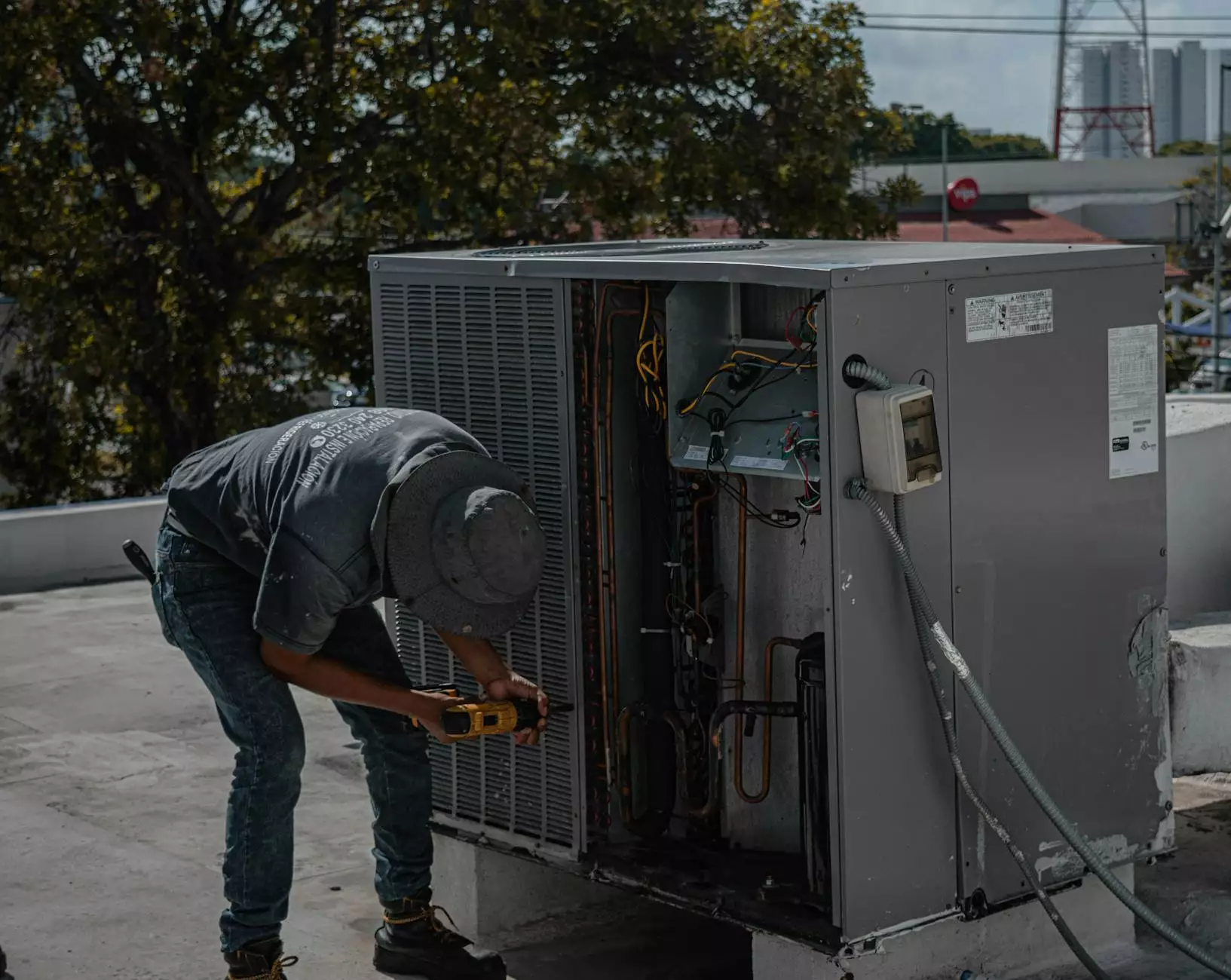Understanding Fan Coil Units: The Backbone of Automotive HVAC Systems

In the modern automotive industry, innovation and efficiency are paramount. Among the critical components that ensure optimal climate control within vehicles are fan coil units. These units hold a significant role in maintaining comfort for passengers while enhancing the overall performance of heating, ventilation, and air conditioning (HVAC) systems. This article delves into the intricacies of fan coil units, their advantages, applications, and their importance in automobile manufacturing, particularly for coldteknik.com.tr.
What are Fan Coil Units?
Fan coil units are equipment employed to regulate the temperature and air quality in various settings, including vehicles. These units contain a coil (which is responsible for transferring heat) and a fan (that circulates air over the coil). Here's how they work:
- Heat Transfer: The unit contains water or refrigerant, which absorbs or dissipates heat as it flows through the coil.
- Air Circulation: The integrated fan draws air from the surrounding environment, passes it over the heated or cooled coil, and subsequently distributes it back into the vehicle.
- Temperature Control: By adjusting the water temperature in the coil, the fan coil unit can efficiently control the cabin temperature, providing a comfortable experience for passengers.
The Importance of Fan Coil Units in the Automotive Sector
With advancements in automotive technology, fan coil units have transformed the standards of climate control in vehicles. Here are a few reasons why these units are indispensable in automotive design:
1. Enhanced Passenger Comfort
Passenger comfort is a significant factor in vehicle design, and fan coil units contribute immensely to it. By providing precise temperature control, they help maintain a pleasant atmosphere inside the vehicle, no matter the external weather conditions. This is particularly critical in regions with extreme climates.
2. Energy Efficiency
Modern fan coil units are designed to be energy efficient. By utilizing advanced technologies such as variable speed fans and optimized coil designs, they consume less power while delivering superior performance. This efficiency translates to less fuel consumption in vehicles, making them more environmentally friendly.
3. Compact Design
Space is often a constraint in automotive design. Fan coil units have a compact layout, allowing them to fit seamlessly even in smaller vehicles without compromising on performance.
4. Flexibility in Installation
These units can be installed in various configurations, making them suitable for diverse automotive designs. Whether it's a sedan, SUV, or a commercial vehicle, fan coil units can be adapted to meet specific needs.
How Fan Coil Units Function
Understanding the operation of fan coil units is crucial for appreciating their benefits. Here’s an overview of their functional components:
- Coil: The heat exchanger component, which can operate with water, refrigerant, or ethylene glycol.
- Fan: A motorized element that draws air across the coil, allowing heat transfer.
- Control Thermostat: A device that regulates the temperature settings based on the passenger's preferences.
- Drain Pan: A component that collects condensation, ensuring efficient water drainage and preventing overflow.
Advantages of Using Fan Coil Units
Numerous advantages make fan coil units a preferred choice in automotive HVAC systems:
1. Improved Air Quality
Fan coil units contribute to superior indoor air quality. The process of circulating air over the coil ensures that any impurities are filtered, making the cabin environment healthier and fresher.
2. Easy Maintenance
Fan coil units require minimal maintenance, which is a significant advantage for both manufacturers and consumers. Regular filter cleaning and periodic checks on the fan ensure uninterrupted performance.
3. Low Operational Noise
Designed with noise reduction in mind, modern fan coil units operate quietly, enhancing the passenger experience by minimizing background noise.
4. Long Lifespan
Constructed with durable materials, fan coil units are less prone to wear and tear, ensuring a longer operational life and ultimately more value for the customer.
Energy Efficiency and Environmental Impact
In today’s world, energy efficiency and environmental impact are critical concerns. The automotive industry is moving towards sustainable solutions, and fan coils are aligned with this trend. Here's how:
1. Utilizing Renewable Energy
Some fan coil units can work well with renewable energy sources, reducing reliance on fossil fuels and promoting sustainability in automobile production.
2. Reducing Greenhouse Gas Emissions
By being energy efficient, fan coil units contribute to lower overall greenhouse gas emissions from vehicles, supporting the global effort against climate change.
Applications of Fan Coil Units in Automotive Industry
Fan coil units find applications in various areas within the automotive sector:
1. Passenger Vehicles
Most modern cars use fan coil units within their HVAC systems to ensure a comfortable riding experience for passengers. The versatility of these units allows them to be used in different vehicle classes.
2. Commercial Vehicles
In buses and trucks, fan coil units provide necessary comfort for drivers and passengers alike, especially during long hauls.
3. Electric Vehicles
As the market shifts towards electric vehicles, fan coil units play a critical role in HVAC systems that need to manage battery temperatures while ensuring passenger comfort.
Future Trends in Fan Coil Units for Automotive Applications
The automotive industry is continuously evolving, and the future of fan coil units appears promising with advancements including:
1. Smart Technology Integration
As vehicles become increasingly connected, integrating fan coil units with IoT technology will allow for real-time monitoring and control, optimizing energy usage and passenger comfort.
2. Enhanced Materials
Future advancements in materials science may lead to lighter, more efficient fan coil units that reduce the overall weight of vehicles, contributing to better fuel efficiency.
3. Customizable Climate Control
Innovations in climate control will allow for personalized settings per seat, offering passengers custom comfort levels for an improved experience.
Conclusion
In summary, fan coil units are a vital component of automotive HVAC systems, fundamentally enhancing passenger comfort, energy efficiency, and air quality. Their adaptability and innovative features make them indispensable in today's automotive designs. As we move towards a more eco-friendly automotive industry, understanding and implementing efficient technologies such as fan coil units will continue to shape the future of climate control in vehicles. Embracing these advancements will ultimately benefit manufacturers and consumers alike, fostering a commitment to sustainability and innovation in the automotive sector.









